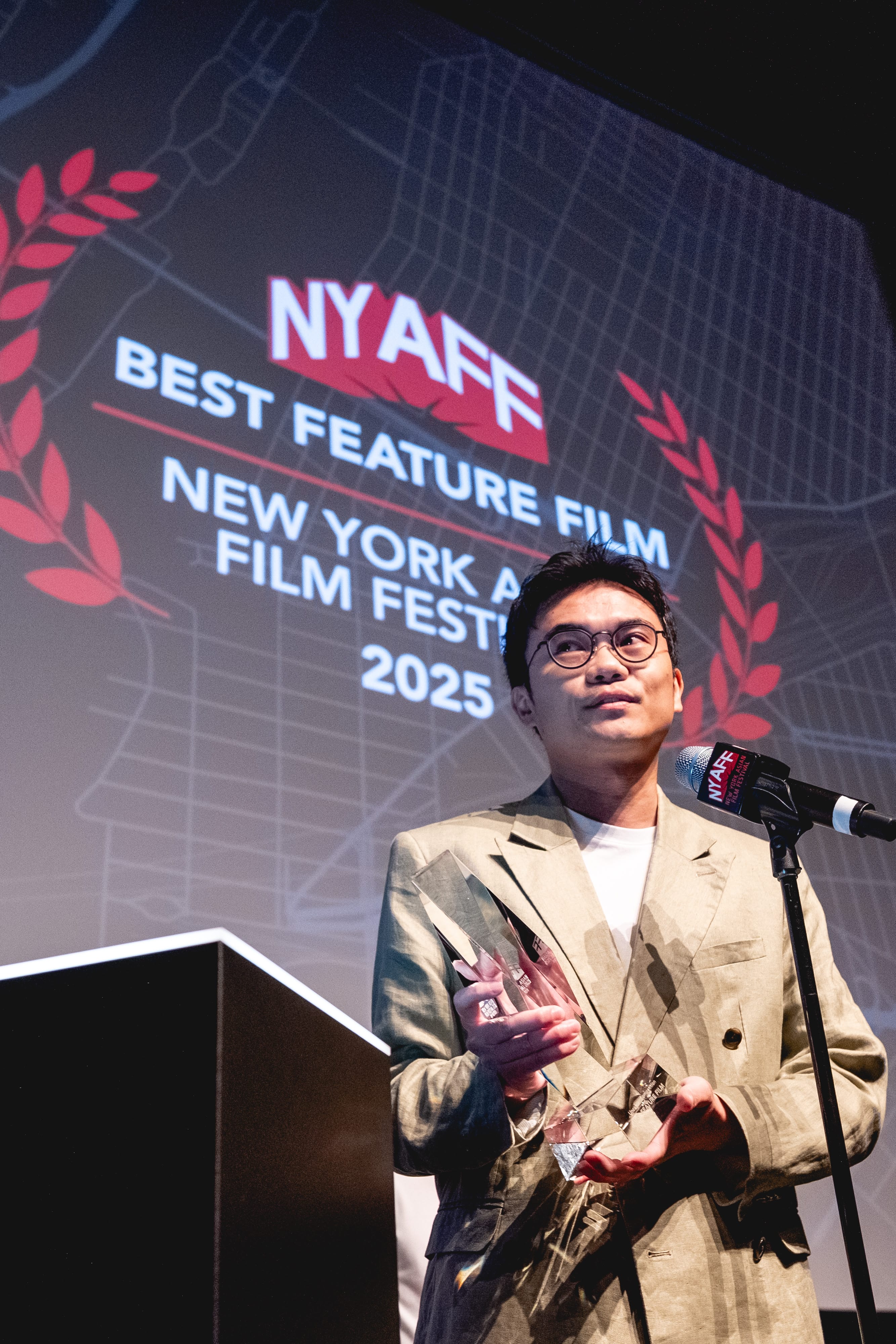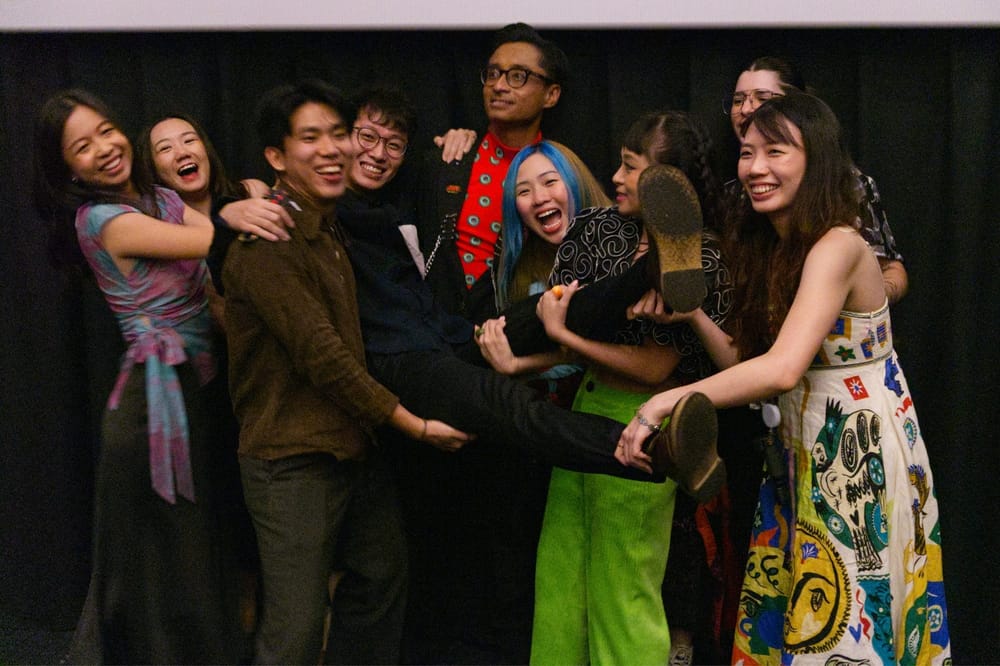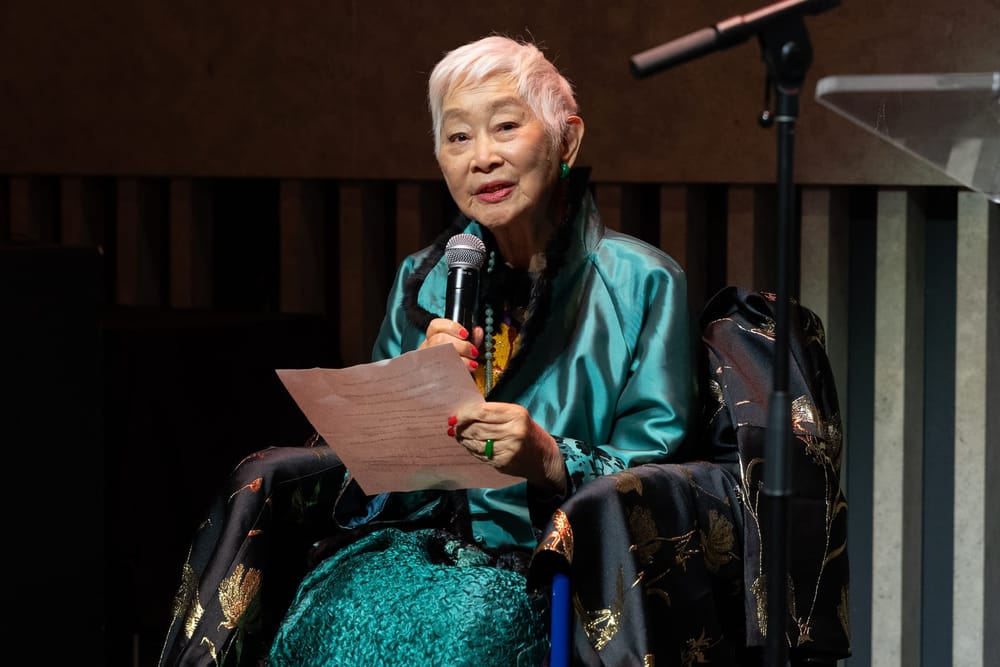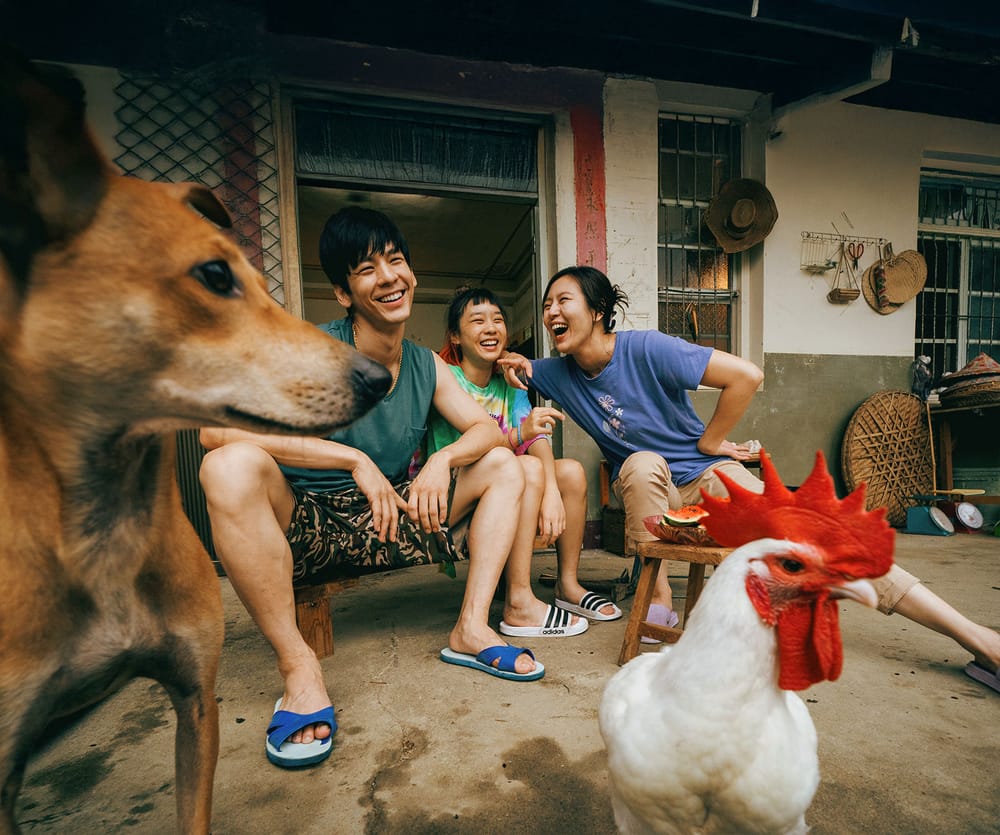
by Stevie Wong
For 15 days, the New York Asian Film Festival brought together film lovers to experience over 100 films, including numerous premieres and an impressive lineup of visiting guests. We're closing out this year's #NYAFF2025 newsletter with two final conversations that capture the spirit of this wonderful 24th edition.
But we wanted to give you a look at our final night, where our group of programmers (top left) could finally relax and celebrate the fruits of their year-long cinematic selections. Also at the closing ceremony, a special jury of industry heavy hitters gave out the UNCAGED Award for Best Feature to Pan Ke-Yin's Family Matters for his contemporary look at a Taiwanese clan.
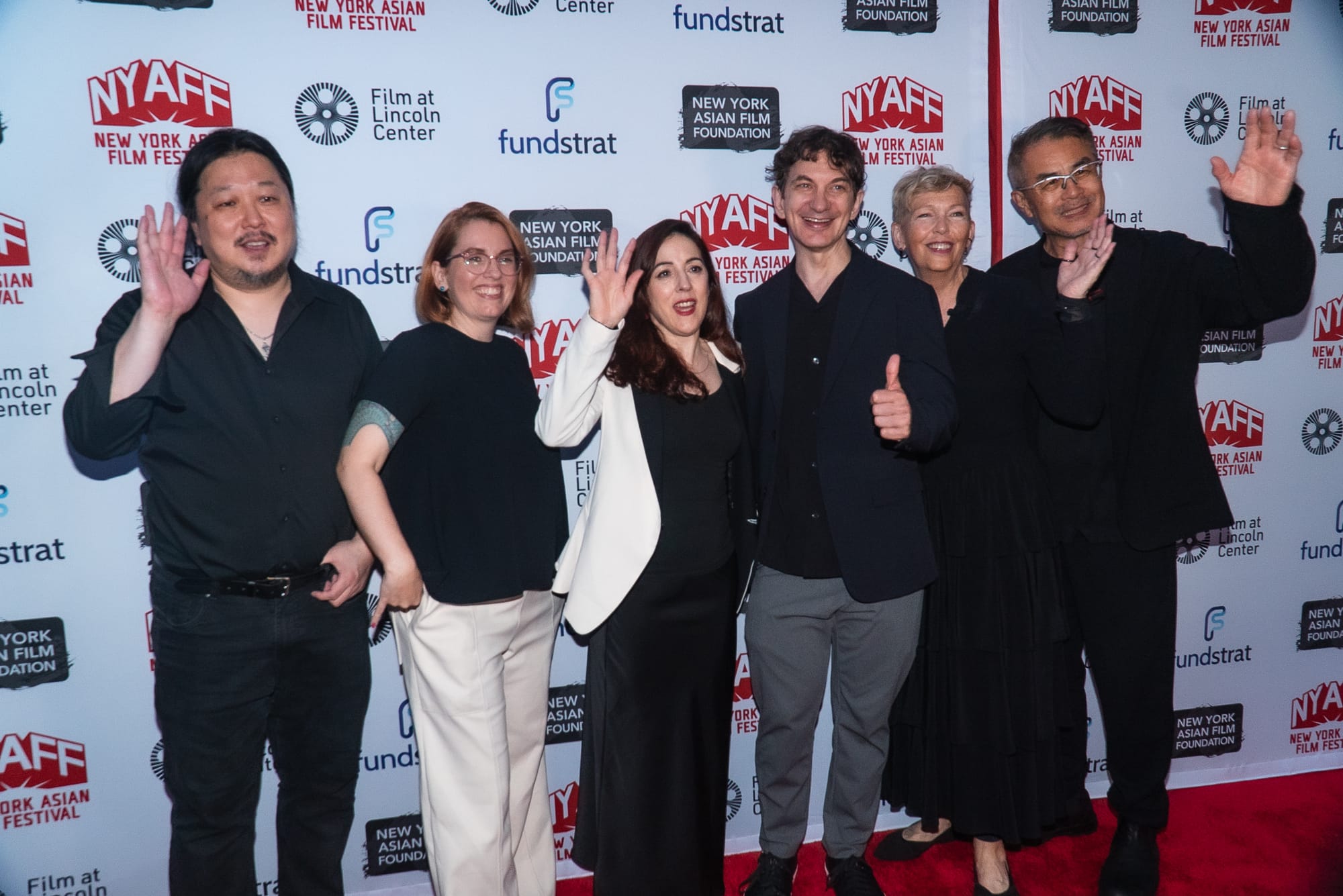
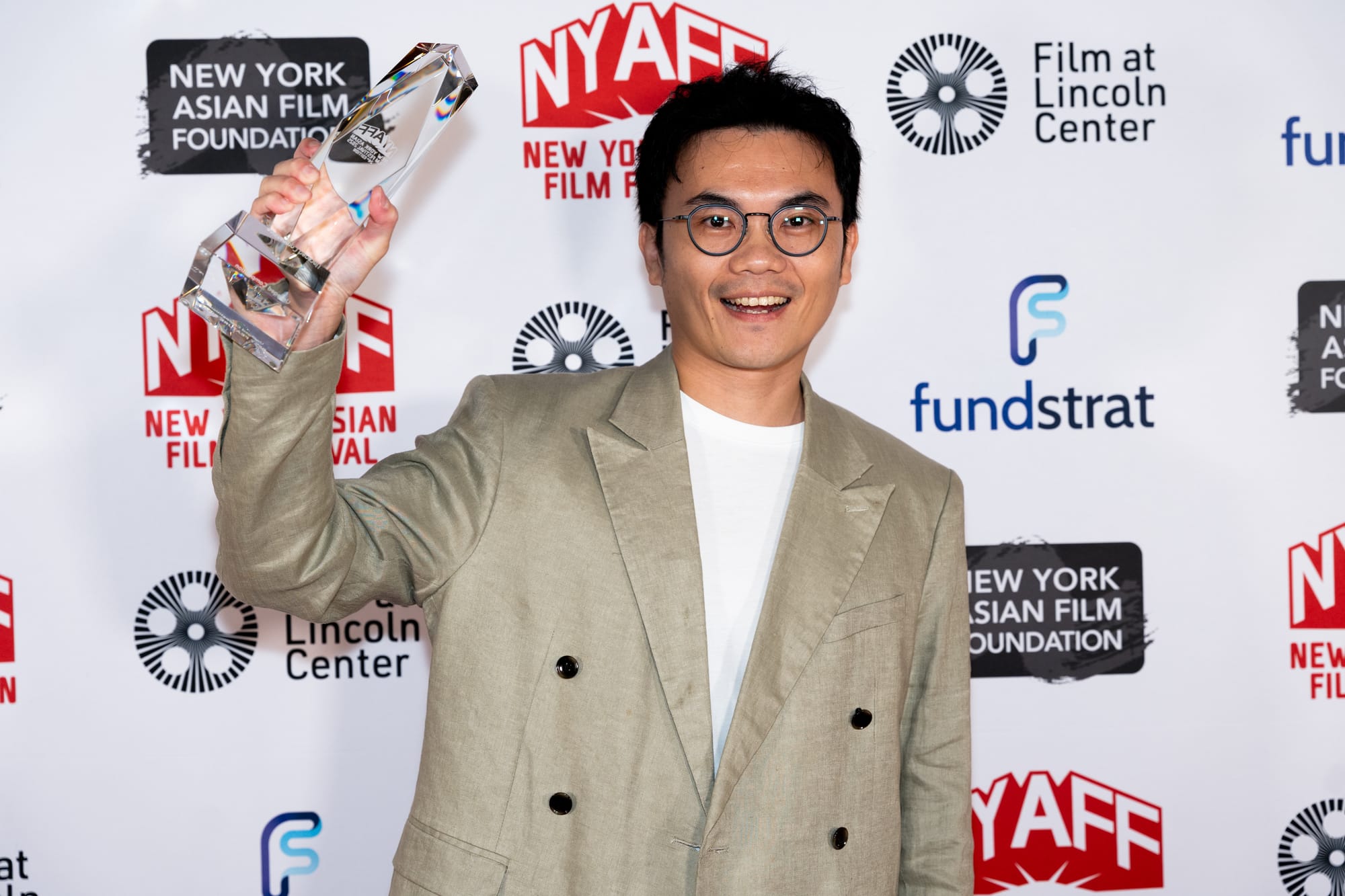
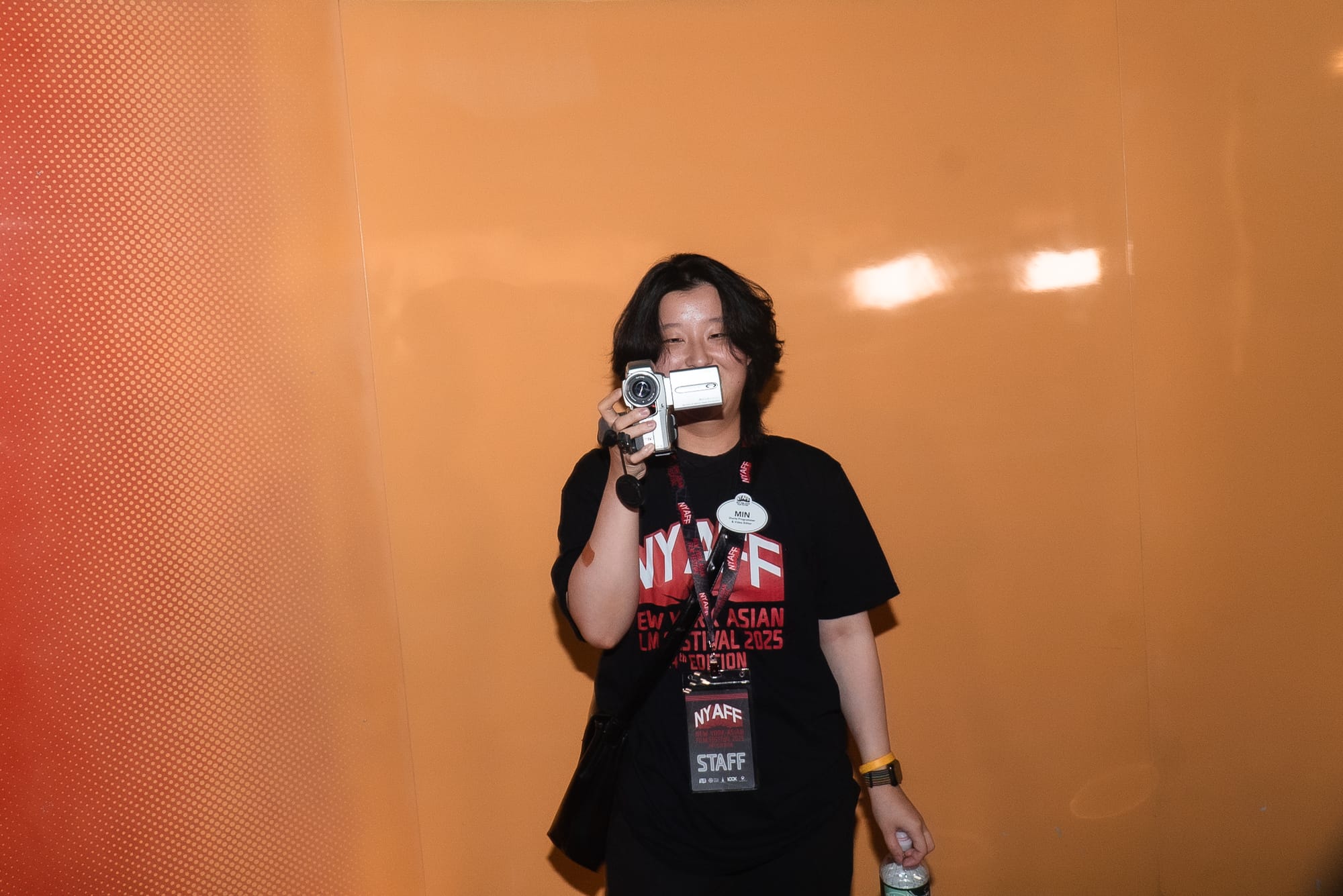
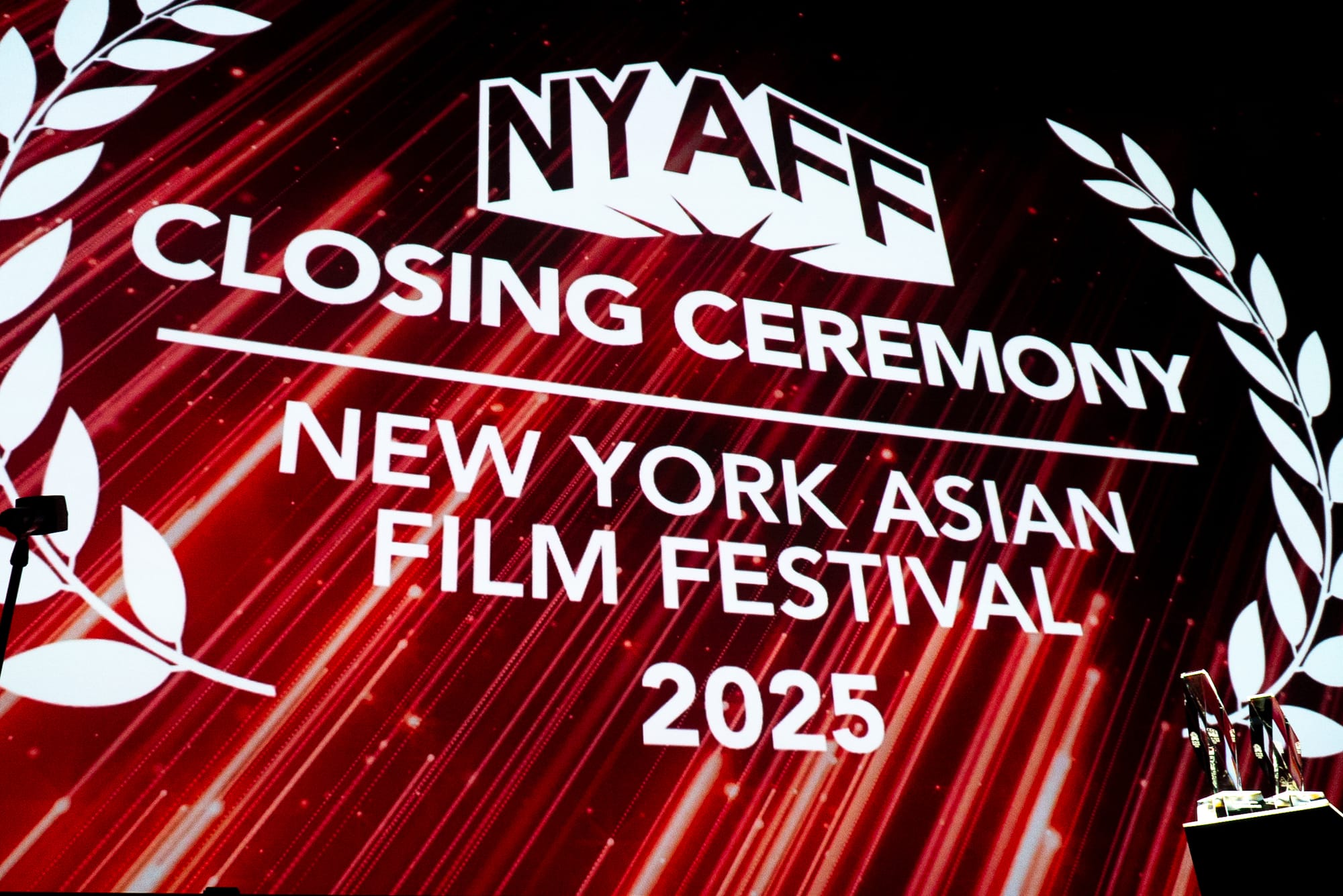
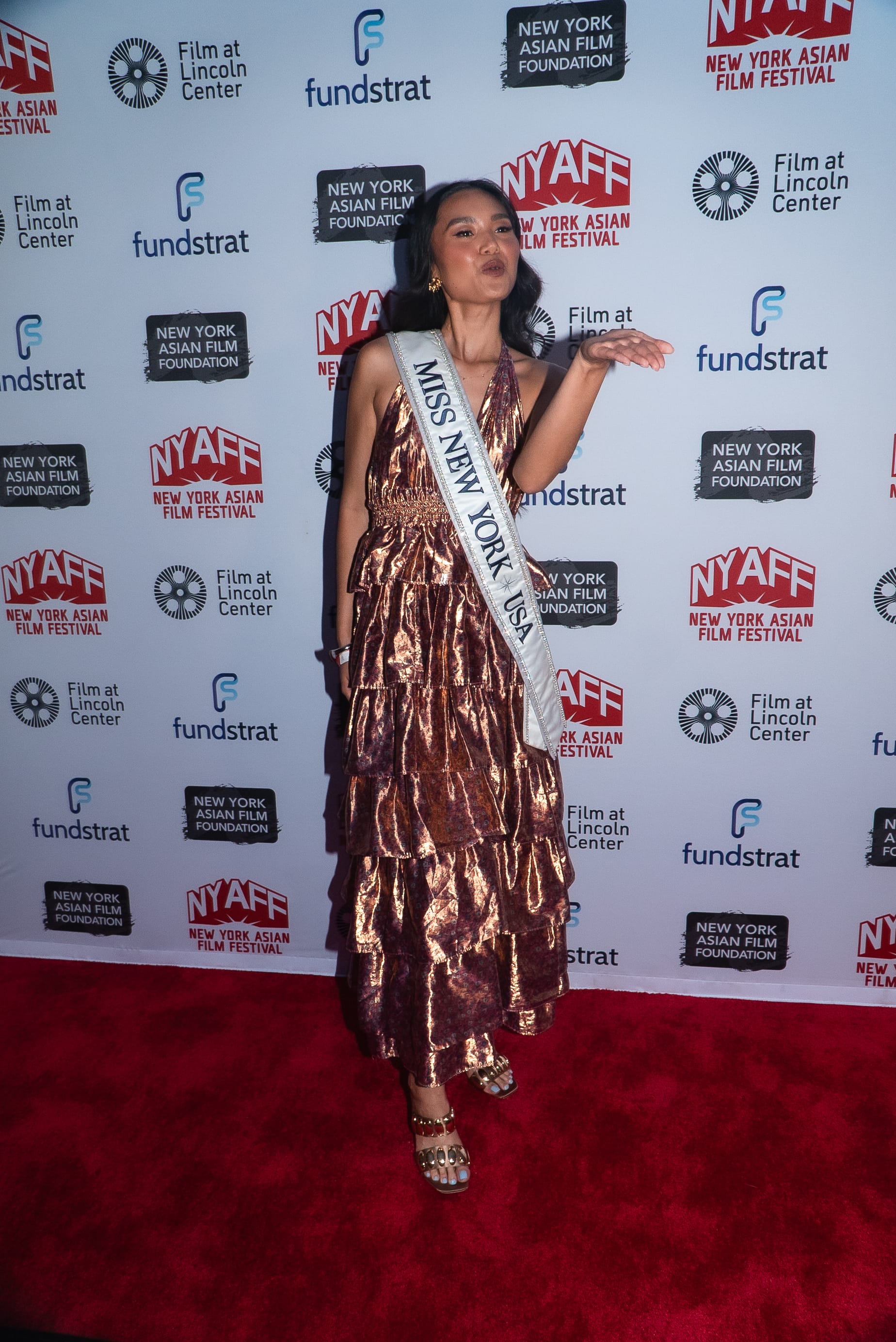
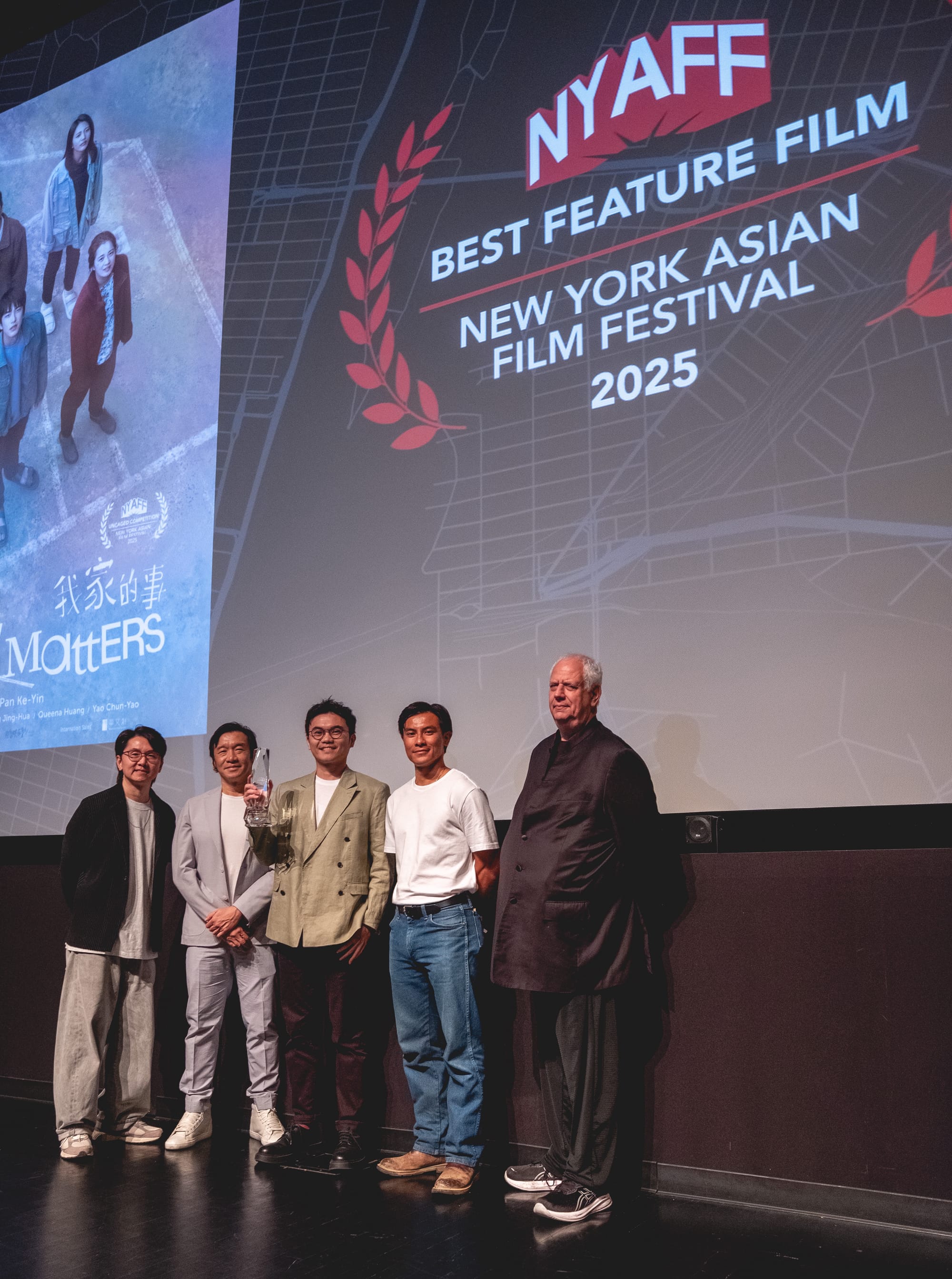

Photos by Lucy Soutter, last row: Photos by Chris Kammarud
But we're not quite over yet! UNCAGED wanted to introduce two filmmakers who brought VERY different perspectives in the films they made, also reflecting the diverse choices this year's #NYAFF2025 brought to their audiences.
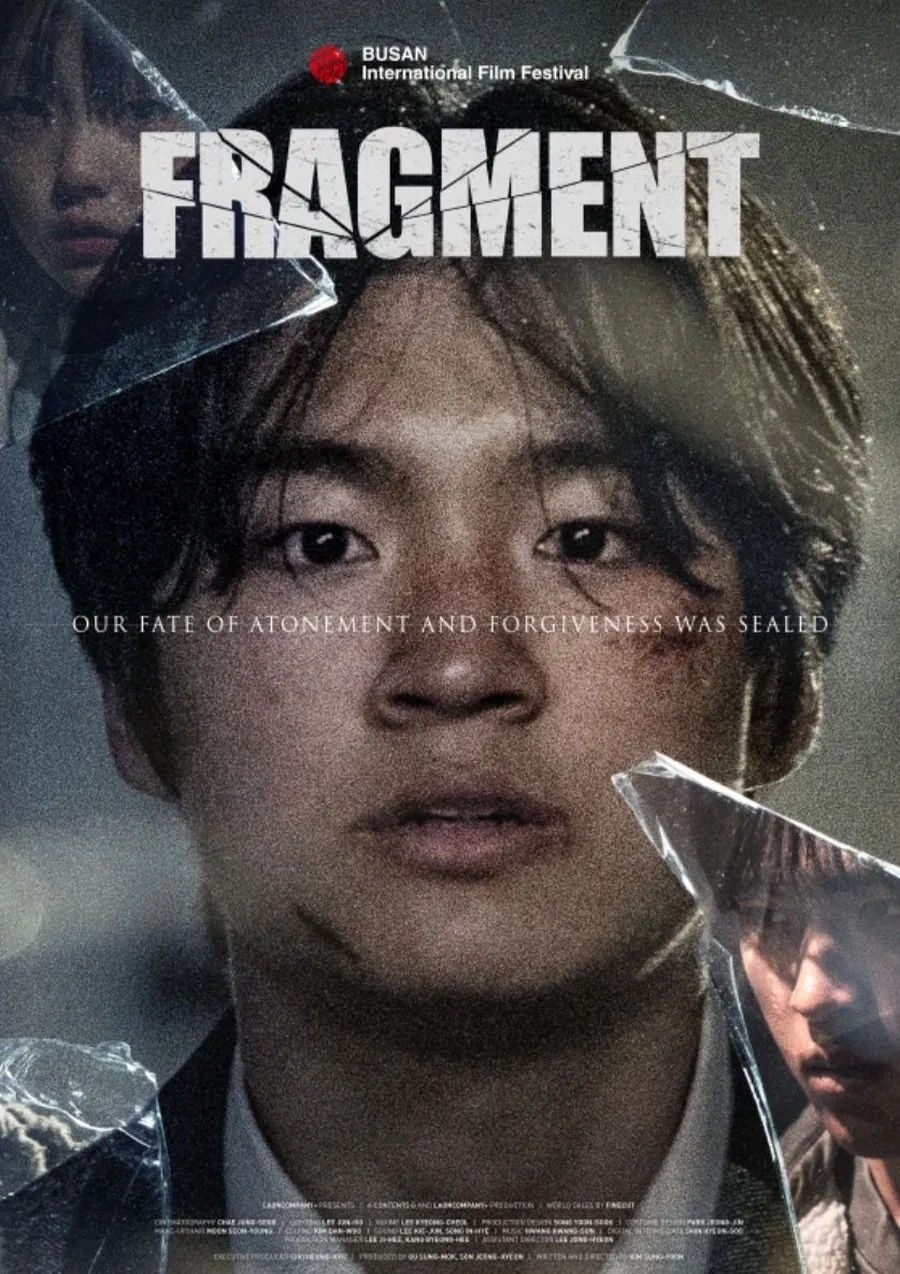
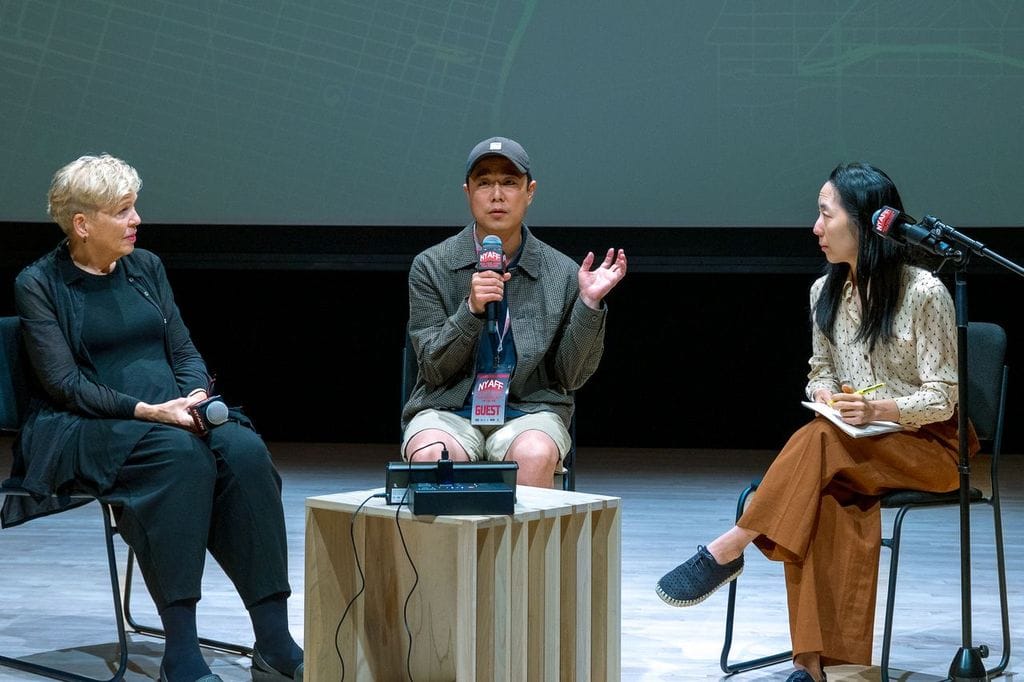
Fragment dir: Kim Sung-yoon (center) photo by: Antonia_nycc
Kim Sung-yoon - Fragment
Director Kim Sung-yoon brings his film Fragment to NYAFF this year, and after seeing his powerful debut, UNCAGED had to sit down with the talented filmmaker to talk about how it all came together. After cutting his teeth as an assistant director on films, Kim's first feature is a heart-wrenching story about three young kids who's lives are intertwined through a horrible crime. Jun-gang (Oh Ja-hun), is doing his best to care for his little sister Jun-hui (Kim Gyu-na) while facing eviction, and Gi-su (Moon Seong-hyun) is living alone after his parents were tragically killed. The twist? Jun-gang’s father is the one who committed the crime. The cast is incredible as they bear the weight of grief, trauma and survival. It's his deft ability to balance all of that for his debut puts him on our radar as one of Korea’s most exciting new voices!
UNCAGED: Before making your directorial debut with Fragment, you worked as an Assistant Director on films like Vanished and Bring Me Home. What were some of the key things you observed on those sets that you brought into your own film?
Kim Sung-yoon: I think working as an Assistant Director definitely made me more versed in the technical elements of filmmaking. But the main thing is watching other directors communicate with the actors. I was yearning to tell a certain story of my own, so as I was working as an AD, I thought, it’s time for me to venture out and do it on my own.
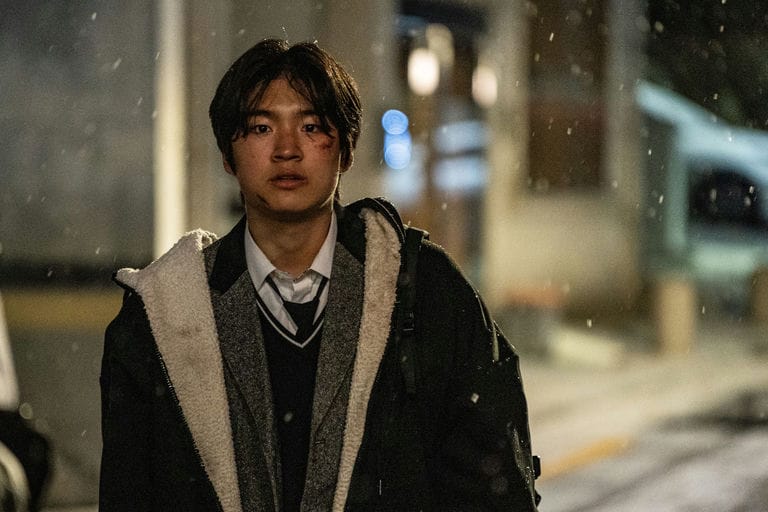
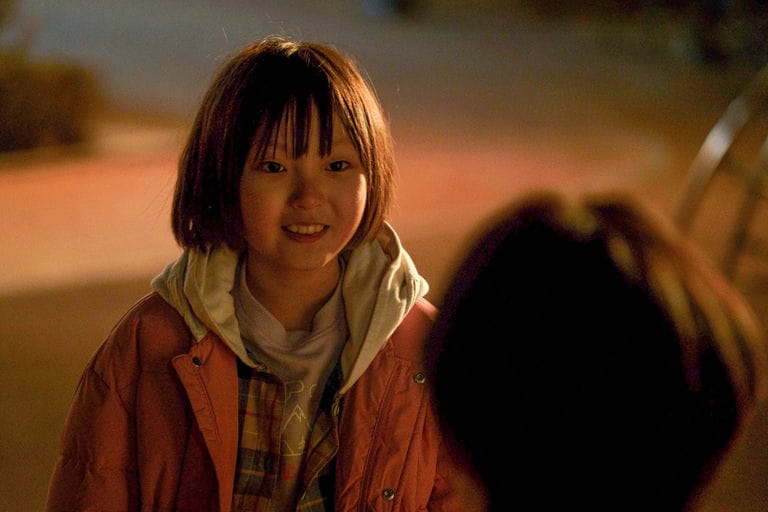
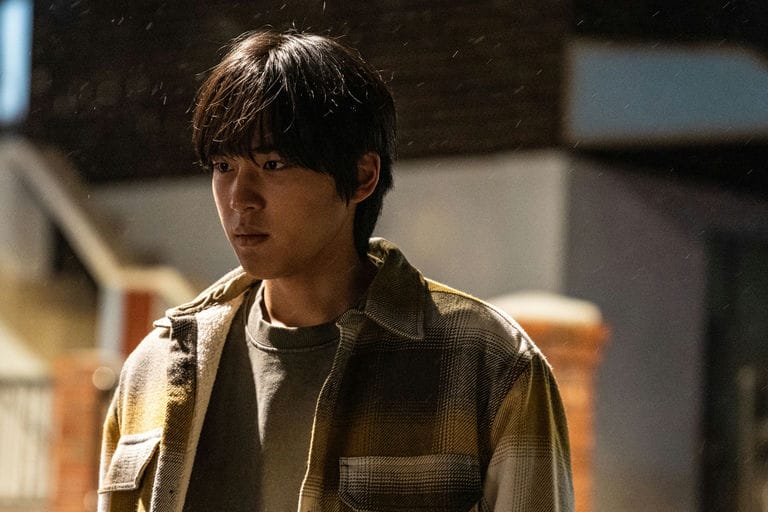
Left to Right: Oh Ja-hun, Kim Gyu-na, Moon Seong-hyun
UNCAGED: How did you come up with the story?
Kim Sung-yoon: I love to read in my free time, and I was reading a compilation of essays by a leader of an organization that supports the children of people in prison. When you see a film that centers around a crime or incident, you usually know the victim, the perpetrator, the police, the detective chasing it. After reading that book of essays, I felt that no one really talks about the people affected, those in the margins, the leftover fragments. I thought that was a story that needed to be told. Once that thought formed in my head, the actual screenwriting process didn’t take that long.
UNCAGED: What’s so beautiful is that you take on both sides of the younger generation affected. You allow these kids to experience their fear, their anger, all of that almost simultaneously but taking a side with anyone. When you were writing, was it a difficult line to stay on?
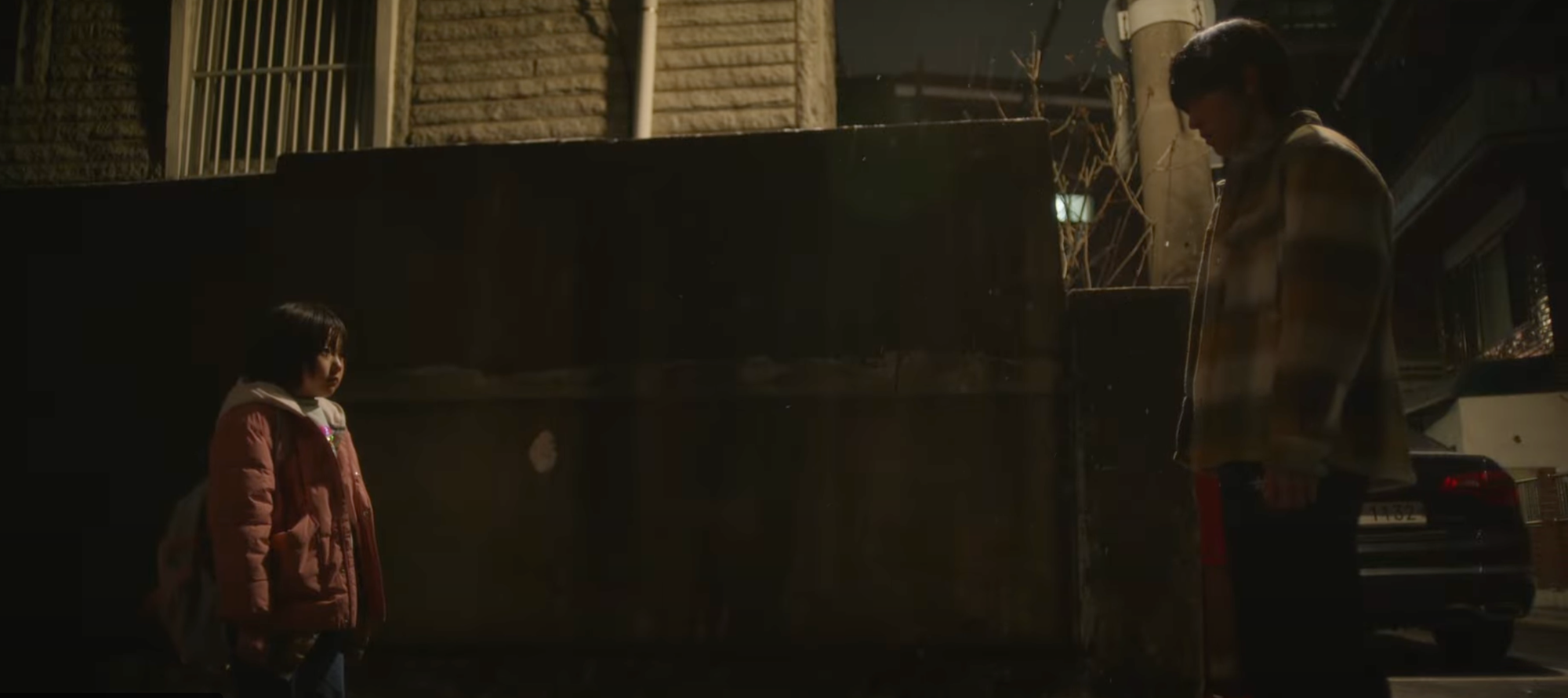
Kim Sung-yoon: Yeah, it definitely was something I was very conscious of, and I tried to work with it as much as possible. With these characters, especially Gi-su (Moon Sung-hyun), viewers will skew toward siding with him because his parents were the victims of the crime. To balance it, I purposely gave more screen time to Jun-gang (Oh Ja-hun) so viewers could see both of them equally. My thesis was that Jun-gang or Gi-su and both just kids. They’re neither the perpetrator nor the direct victims of the crime, but they’re both victims of that terrible situation. That was the thesis I wanted to communicate.
UNCAGED: Because everything is seen through these young actors, how hard was it for you to find your three leads?
Kim Sung-yoon: I was really surprised by the casting process. I thought, as the adult, I’d have to explain everything to them from a child’s point of view but treating them as creative equals was the right approach. I told them what I needed and what I was going for, and they understood. If they had questions, they asked. We established that relationship from the audition process. The actor who played Jun-gang actually has a younger sister the same age as Jun-hui (Kim Gyu-na) in the film, so a natural rapport formed.
On the very first day of shooting, I reminded them this was all our first time: my first feature as a director, their first time as leads. I told them we could both make mistakes, but if we trusted each other, we would grow from the experience. By the end of the shoot, I saw how much these child actors had grown, visibly and internally. And then I thought, “Have I grown?” (laughs)
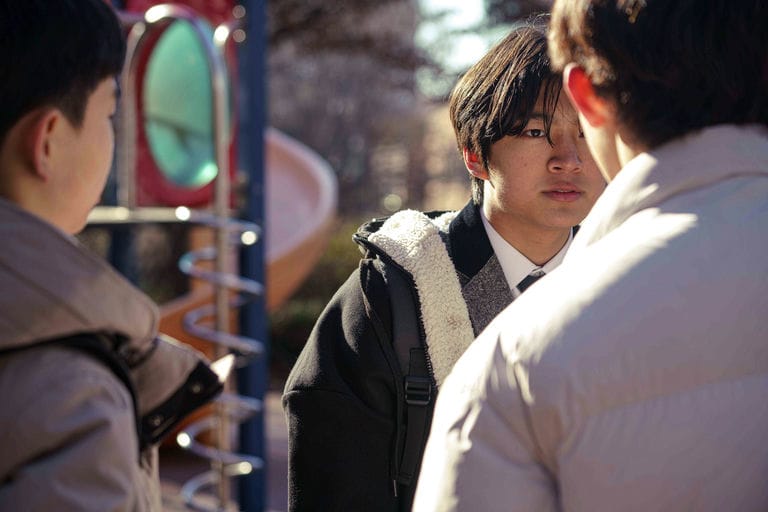
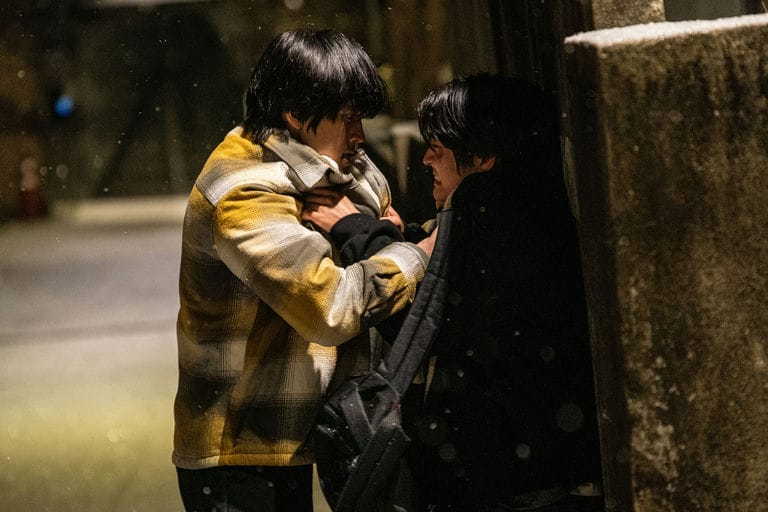
UNCAGED: This film has so much empathy for these characters, what were you trying to say about humanity when you were writing it?
Kim Sung-yoon: These three characters who come together because of this incident, end up saving one another. When something terrible happens, we want to hit someone, express anger, and blame. But the harder thing is to find empathy for the person you think you want to blame. I wanted viewers, as they follow Jun-gang’s journey, to ask themselves about forgiveness. What does it mean to be empathetic? That’s the question I wanted to leave viewers with.
To read the full interview please go to UNCAGED
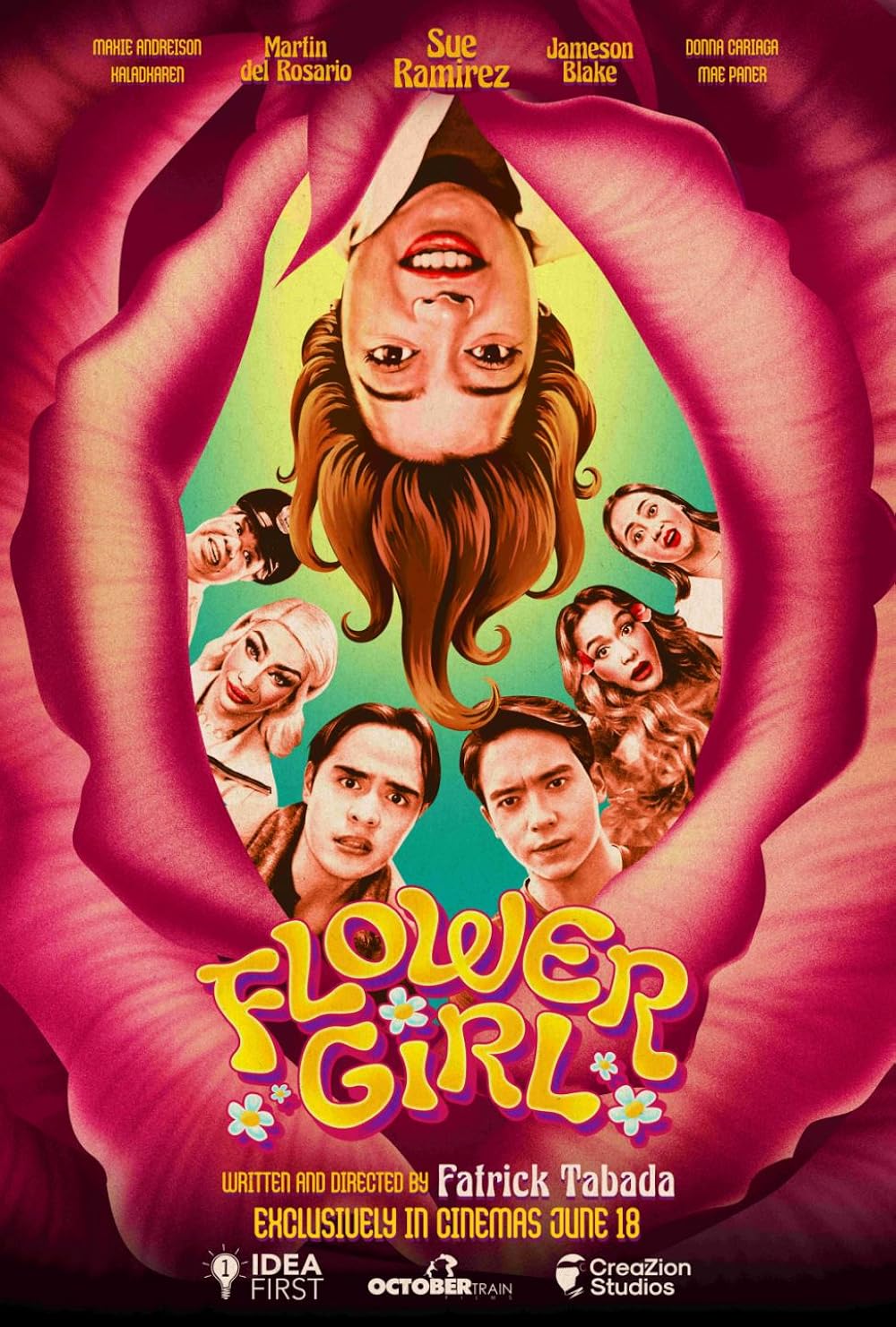
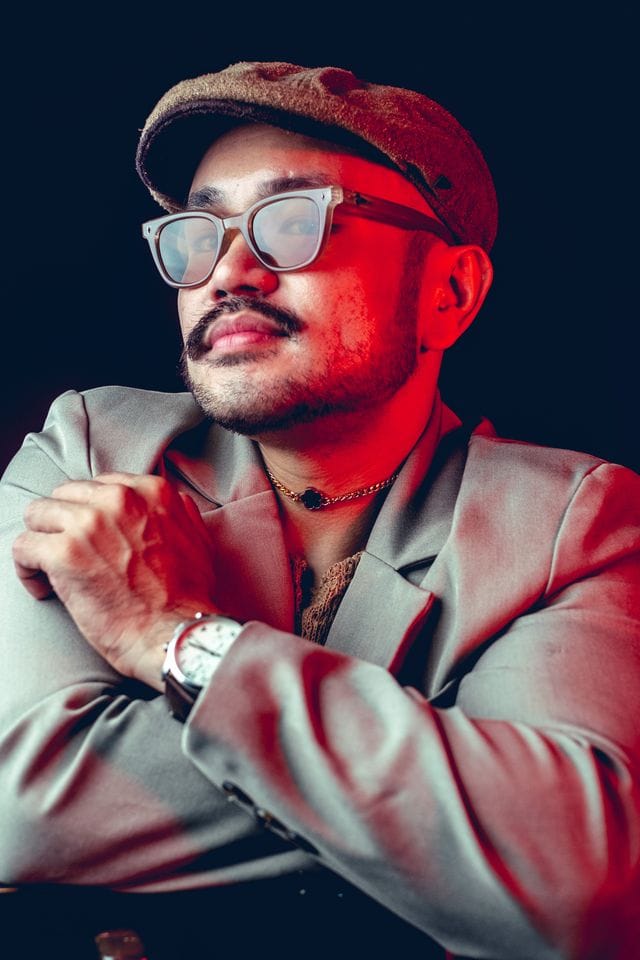
Flower Girl dir: Fatrick Tabada Photo by Chris Kammerud
Fatrick Tabada - Flower Girl [Closing Night Film]
#NYAFF2025 took a bold step in choosing first time director Fatrick Tabada's raunchy, unapologetic rom-com, in which a self centered influencer Ena (Sue Ramirez) spews transphobic comments in a public restroom and wakes up the next day with her "poochy" missing. To get it back, she must find true love without the help of her genitalia. All this in the first 15 mins of the film! Though the plot line is wonderfully unhinged, Tabada manages to tackle on body politics, transphobia and identity all through the lens of his technicolor explosion on screen.
UNCAGED
You wrote Flower Girl during the pandemic. Because everyone was in their heads, I’m curious: what was it about this story that felt like it needed to be told during this period of isolation?
Fatrick Tabada
The thing is, I think work saved me during the pandemic. Being bored kind of saved me from myself and all those thoughts. I actually went to Baguio City, it’s like six hours away from Manila, and I got trapped there because of travel restrictions.
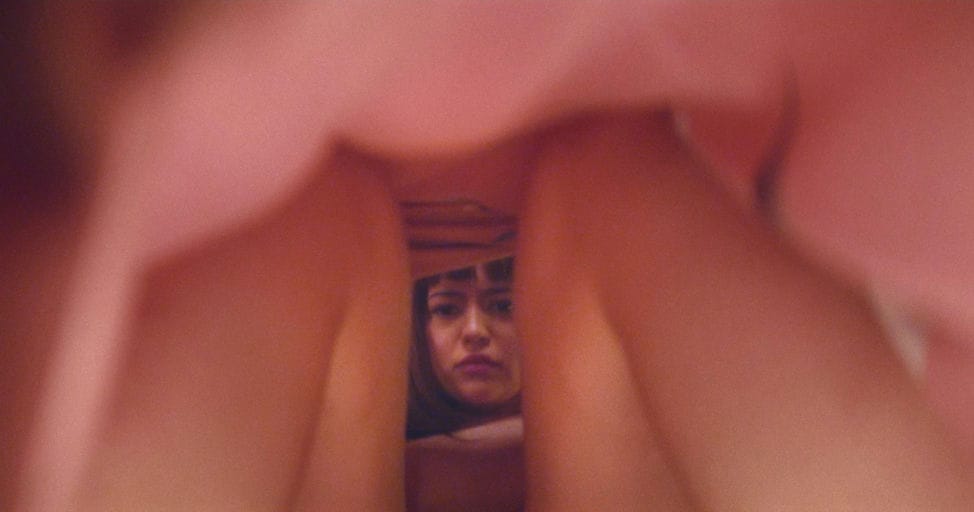
Flower Girl is actually based on the ideology that people judge us by what’s between our legs. Like men are powerful because they have penises, women are treated unfairly because they have vaginas, and trans women are discriminated against because they’re trans women. So the seed idea stems from that, and I just wanted to have a very comedic way of tackling those topics.
UNCAGED
The Philippines can still be conservative in terms of the films being made, but your film is unapologetically out and proud.
Fatrick Tabada
The funny thing is, I never thought it would see the light of day. The concept was really, really wild. And the Philippines is still a very conservative country. It never came to my mind that this was really possible to be done. But I was shocked when the studio said yes.
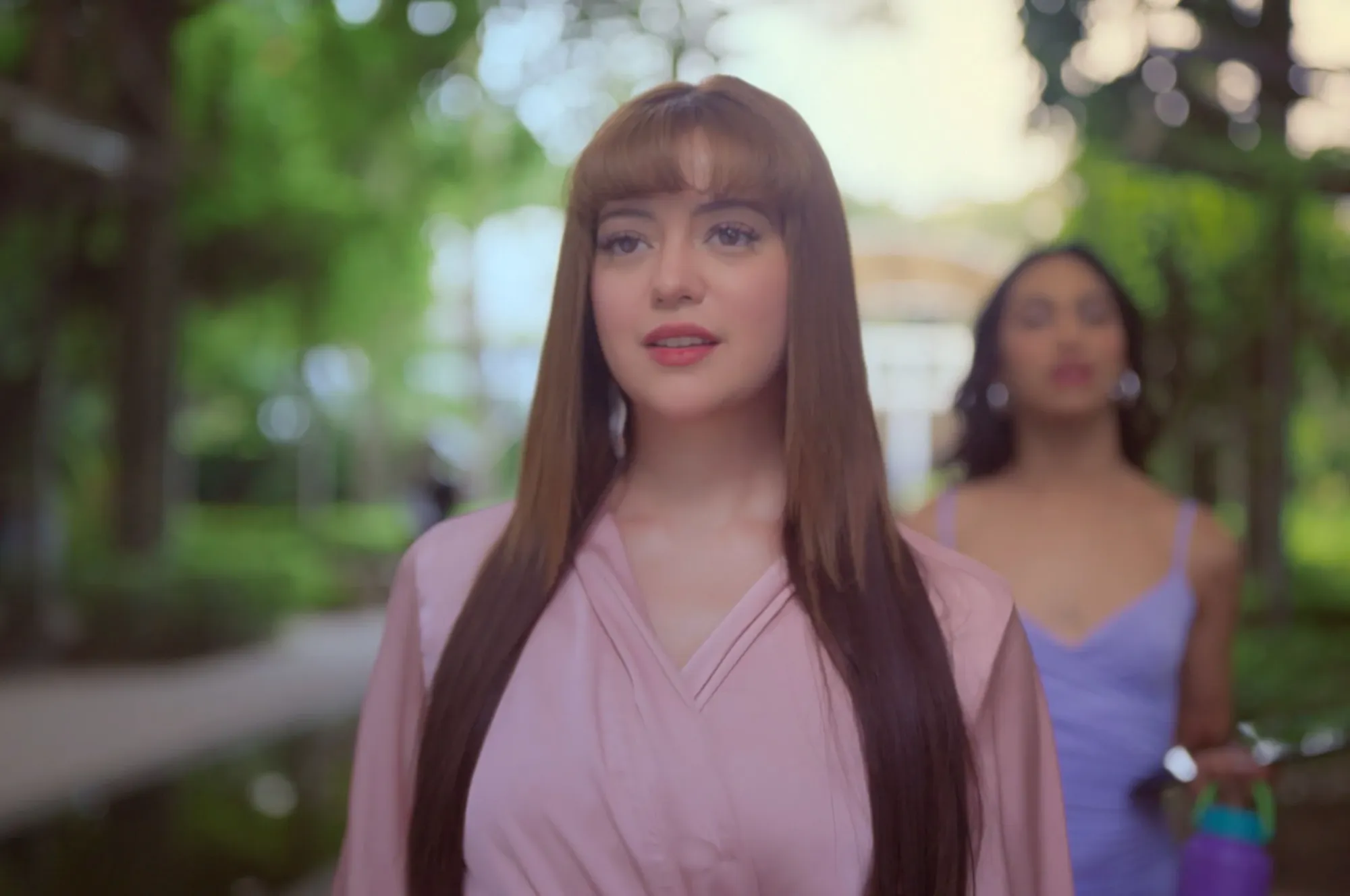
UNCAGED
What’s also wonderful is that your lead, Sue Ramirez is known to be a dramatic actress.
Fatrick Tabada
When I was writing the script, I didn’t want to tailor it to a specific actor. I didn’t want the character to be trapped by what kind of actor I had in mind. When I pitched the film to Sue, she said yes immediately. During the table reading, I had just one note: I told her, “I know the plot is very absurd, but I want you to deliver it very seriously, and the comedy will flow.” I also love slapstick comedy, but I don’t think this film is slapstick. The thing with Sue is, she’s really good at drama, but she has the best comedic timing.
I think in the end, this is her best performance yet.
UNCAGED
What I also love is that everybody’s game for your humor. You’ve created a space to do that in your film.
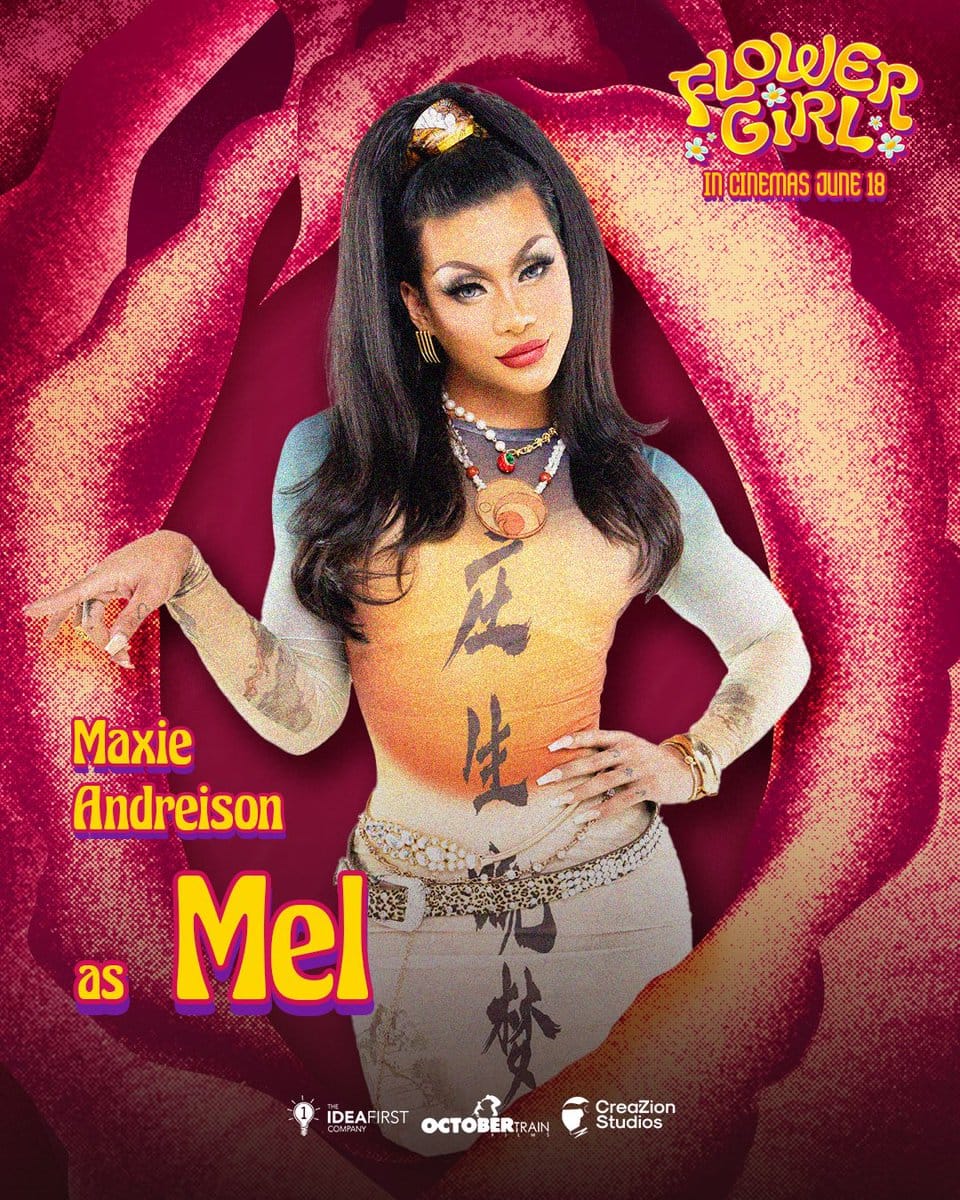
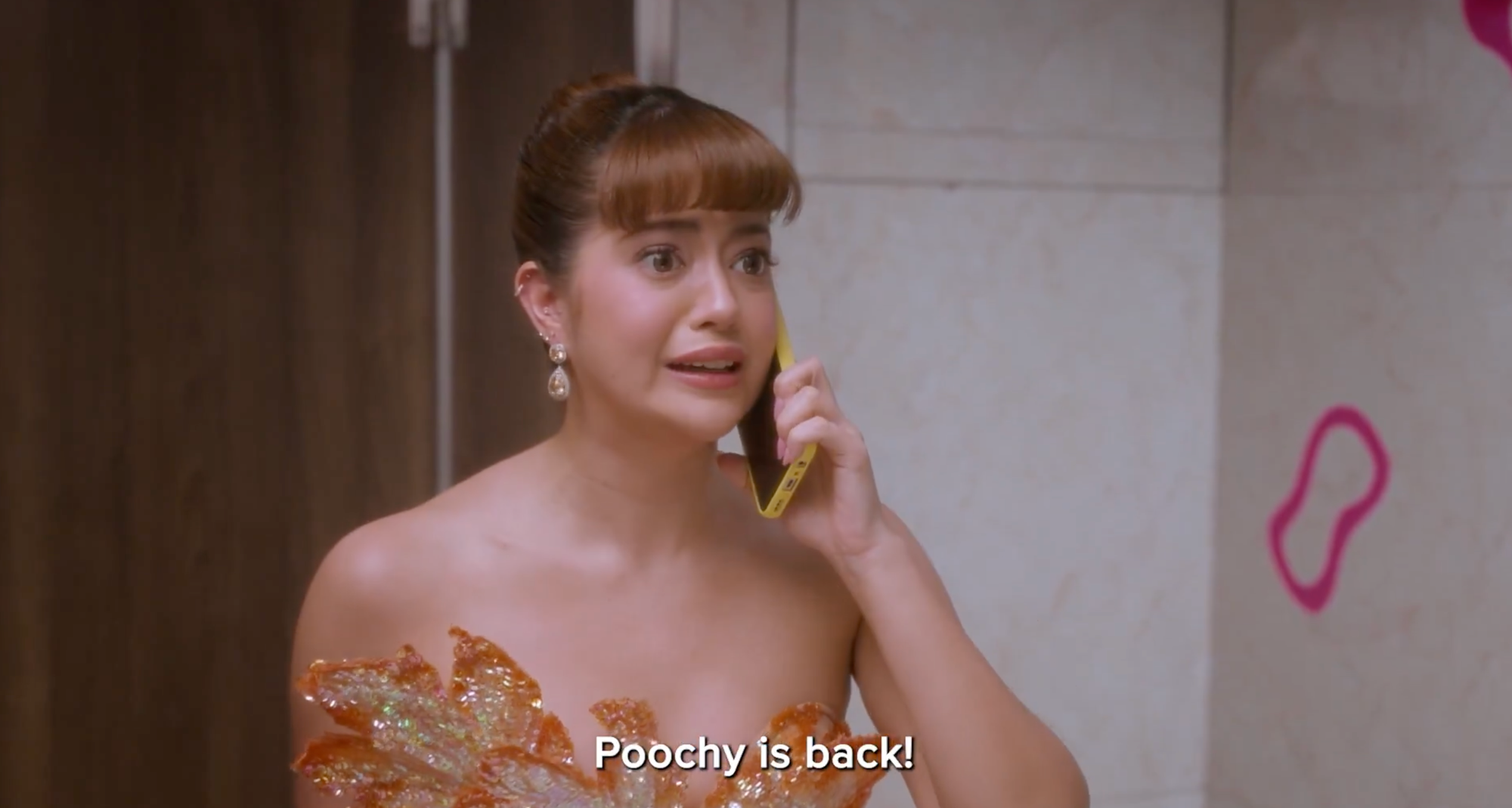
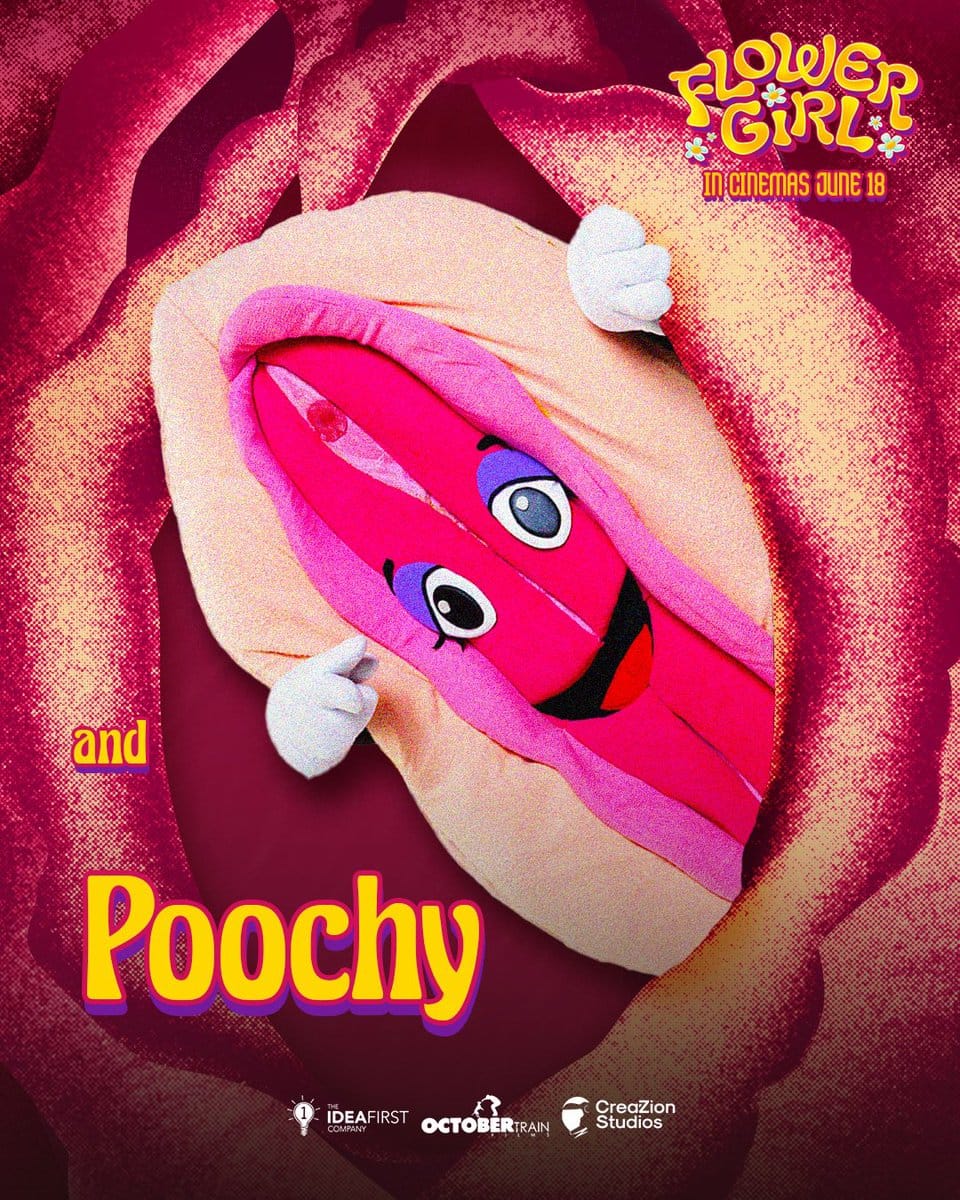
Fatrick Tabada
I believe there’s no sacred cow. You can always make fun of gay people, trans people, minorities, as long as it’s funny. Everything will be forgiven if it’s funny. But most of the time, offensive jokes aren’t really funny, they’re just offensive.
UNCAGED
The film is unrepentantly queer in its storytelling. What’s your brand of humor?
Fatrick Tabada
The thing about comedy is that I really love writing it. All of my filmography is comedy, but when I write comedy, I take it very seriously. It’s not just a joke for me.
And I believe in the power of comedy because when people open their mouths to laugh, that’s the best way to shove progressive ideas down their throat.
To read the full interview please go to UNCAGED
So that's it for this year's UNCAGED @ NYAFF newsletter! Hopefully you had as good of a time getting to know some of the attending guests as much as we did. Please sign up for future articles and exclusive interviews and hopefully you'll be seeing more of this newsletter on the regular! Thanks again!


